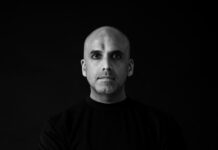Sick Girls, Splash(Photo: private)
Before the pandemic, when we were all still allowed to go out and dance, Berlin has always been the destination for avid techno fans. People came from all over the world to visit the city’s most famous institutions, such as Berghain, Watergate and Tresor. With techno being the main focus, the scene has shifted from its beloved underground to an almost commercial level.
This shift to the mainstream, however, allows other scenes and genres to live out their wildest underground dreams. The bass-music scene, which includes genres in the likes of drum & bass, UKG (UK Garage), jungle, breakbeat to name a few, has always had its own special spot in the city even though it started blossoming much later than the techno scene.
History of electronic bass music (in Berlin)
Jungle, drum & bass and UKG originated in the UK during the mid-90s as a by-product of the country’s rave scene. The genres are typically characterised by fast breakbeats, which are usually between 160-190 BPM, as well as heavy bass- and sub-bass lines, but over the years have been incorporated with elements of various genres, which led to many permutations.
“If you look at bass music in Berlin, it was always here, as long as drum & bass was produced and played somewhere in the world, it was played in Berlin too, but just on a smaller scale”
– Alex, Sick Girls
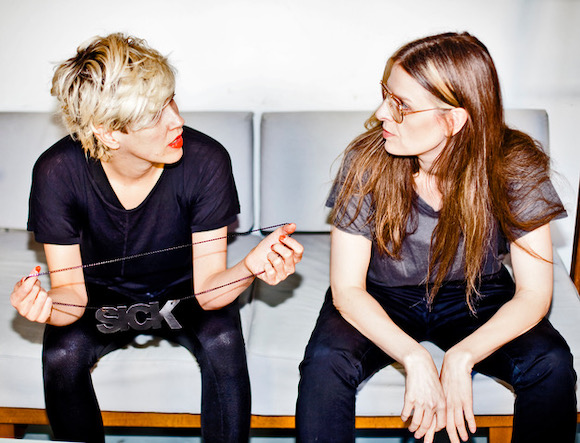
Though Berlin’s awakening to bass music came slightly later than the UK’s, it was still as vibrant, but predominantly more underground and not as well documented as other scenes. Beyond rather purist drum ‘n’ bass clubs such as Icon, Toaster or WTF and crews like Hard:Edged and Exponence, two pioneers who shaped the scene in Germany’s capital are the Sick Girls. The duo, formed of Alex and James, started as bookers for Tresor and WMF and then formed the above mentioned DJ-duo in 2004. “If you look at bass music in Berlin, it was always here, as long as drum & bass was produced and played somewhere in the world, it was played in Berlin too, but just on a much smaller scale”, explains Alex.
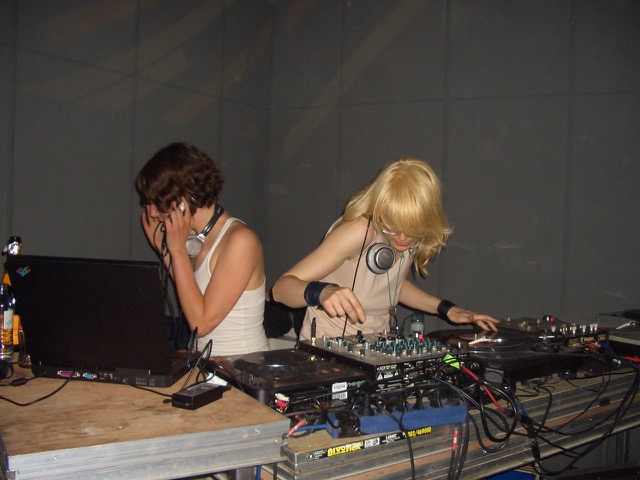
“However,” she adds, “the movement properly started with the Sick Girls and Grime Time in 2004.” Unlike other collectives, who predominantly focused on Grime, the Sick Girls mixed several different genres, such as jungle, drum & bass, dubstep, to name a few. “We were a manageable movement of around twelve to fifteen people,” says Alex.
The first wave of bass parties kicked off in 2004 and lasted around two years with regular events, special appearances from UK artists and full clubs. “The crowd was completely different than today’s, of course,” says Alex, “back in those days you didn’t have as many expats or tourists for, which meant that the club was heavily German-dominated, yet still mixed.” She continues telling me that due to the origin of those drum & bass parties, the parties attracted the most diverse crowd possible at the time and even back then you heard more people speaking English than German, especially compared to other clubs.
One of the hotspots for bass-music in Berlin used to be the club WMF. WMF was shut down ten years ago due to the building having been bought by an investment company. Even though WMF wasn’t solely a bass-music focused club, it was known as one of the hubs for the city’s scene at the time. Not having a designated club space has since pushed the scene more and more into the underground, which isn’t necessarily a bad thing. Thomas, aka TMSN, one half of Berlin’s strictly only UKG-event series, Operate, argues that bass music has developed to become more of an alternative in Berlin and adds that he sees the current drum & bass scene in Berlin to be too male-dominated.
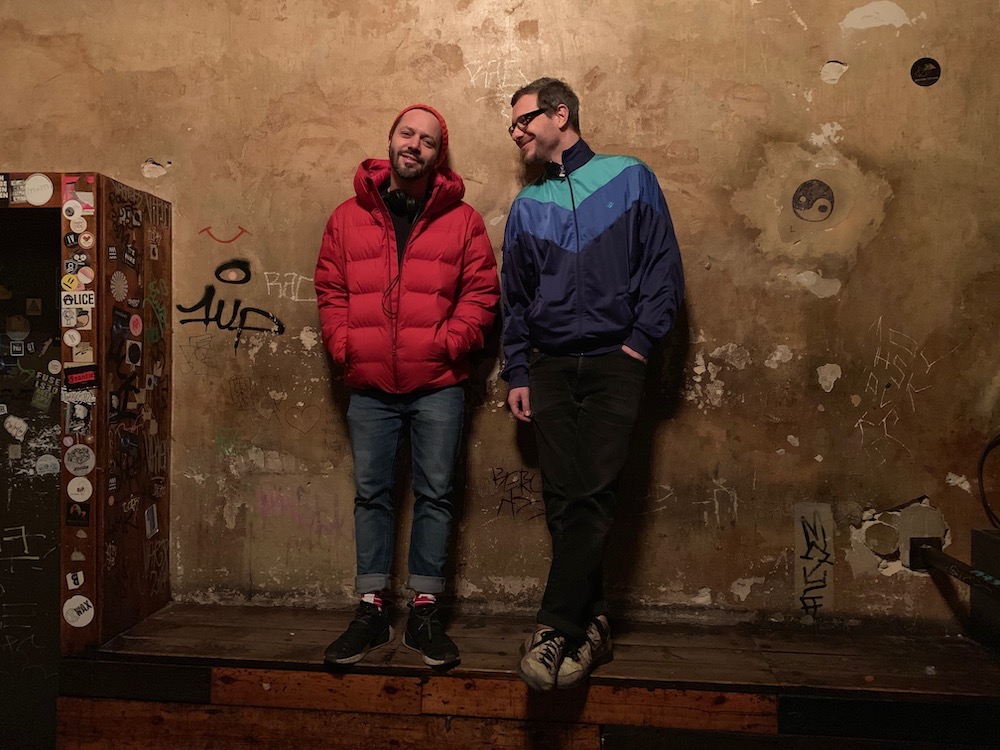
“There were more females in Berlin in the scene than other cities, though,” remembers Alex and adds that they always tried to book as many female artists as possible for their events. “For the first party we ever planned, we were looking for ages and then found those amazing three girls from East London, called the Outbreak Crew. For some reason, they completely disappeared off the face of the earth after a year and we never heard from them again.” However, shifting the attention from artists to crews, Alex remembers that during the first wave there were no females represented in any of the crews, and even if there were any, they weren’t visible.
“We didn’t really see ourselves as DJs, cause we didn’t know how to mix at the time, but rather as women who are doing something different and built an alternative and inspire both men and women.”
– Alex, Sick Girls
Lady Sovereign, Warrior Queen and M.I.A. came later in 2005 and started the wave of female crews around half a year later. “We didn’t really see ourselves as DJs, cause we didn’t know how to mix at the time, but rather as women who are doing something different and built an alternative and inspire both men and women,” states Alex.
When coming back to the roots of bass-genres, they all mostly originated in the UK and then slowly became international. However, the Berlin movement seemed to have been a lot more peaceful and friendly than its originator. “We had people coming from London and they loved playing here ‘cause it was super peaceful,” adds Alex.
But, of course, whenever there’s human interaction, there will always be some sort of disagreements. “You had the first generation being annoyed by the second, the second generation then is annoyed by the third, and so on,” says Alex blaming this sort of discontent on media attention.
She says that she’s noticed that with every wave, starting from the first, there seems to always be one article in the press about the specific wave introducing Berlin to UK bass music.
That does in no way mean that the Sick Girls’ legacy isn’t honoured or in the worst case, forgotten, as Sarah Farina, a young producer and DJ based in Berlin, says: “I wouldn’t be where I am now without the Sick Girls. They shaped mine and so many others’ paths and even though the scene is small, I want people to realise who’s responsible for shaping it.”
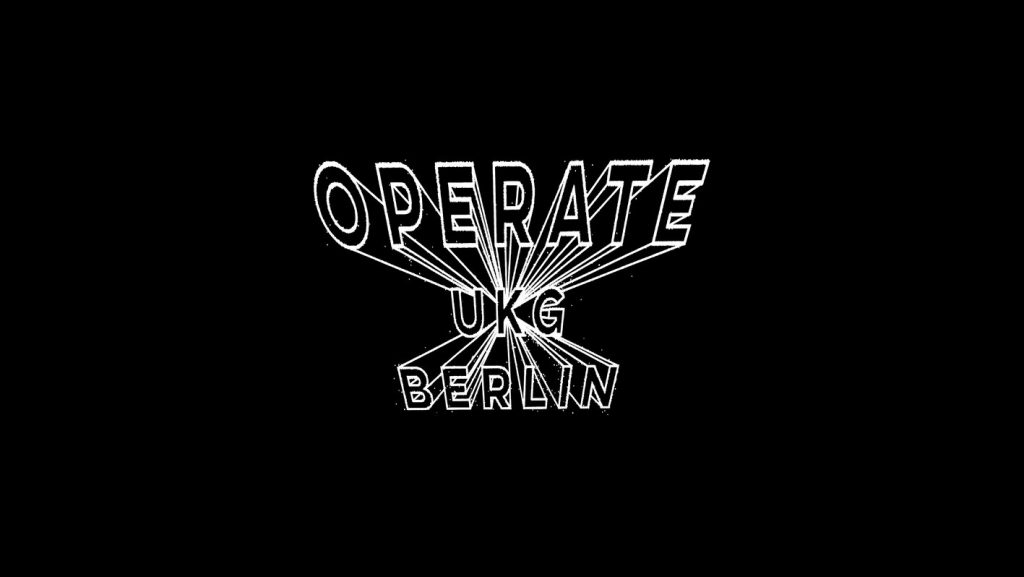
Beyond longstanding party series Wax Treatment the second wave started with the rise of expats in Berlin. There were more and more British and American people in Berlin who started organising their own parties. One of those parties is the event series Operate, which is run by the two German DJs/ producers Ben Mono and Thomas [TMSN]. Operate is the only strictly UKG event in Berlin. “The first event we did at Griessmuehle, we sold out, we couldn’t let any more people in. And it’s super interesting because we don’t know who those people are and how they found out about Operate, but there is a demand for those events in Berlin,” says Ben Mono.
He continues, saying that when they first started Operate, he was concerned about the responses it would get in Berlin. He adds: “I know Berlin. And I know Berliners don’t like to be pushed too hard, so you have to take them on this slow journey where eventually you’re gonna end up at a high BPM. But to get there, we had to reshuffle the whole concept and make sure no one leaves until we reached the peak BPM.”
British DJ and producer Kikelomo, who now calls Berlin her home, agrees and says that it seems to be easier to play bass-heavier sets when they’re not labelled as such. “I feel like if you market a night as a bass night, it will be a lot harder, but to be honest, I’m surprised with what I’ve gotten away with during my sets here so far,” she laughs and continues, “There was one night I played, I think it must have even been the last one before Corona hit, at About Blank’s Strictly and I ended the set with some jungle and everyone really, really liked it and as I finished up everyone voiced their surprise by how open-minded the crowd was.”
That sort of mentality of dancing to something you can’t define is something the two Operate guys have noticed too. “We have a lot of people coming from all over, going nuts to UK-garage without knowing what it is,” says Ben Mono. Thomas then adds: “Even the people running the venues don’t recognise the genre, which I think is incredible, considering that UK garage has been out there for decades. But having said that, we also profit from that, ‘cause people don’t know a lot of the music and it’s not as easily available.”
The question of venues and club spaces is something that still concerns and limits bass music events in the city, as there’s a risk that not many clubs presumably are willing to take. “It all depends on who you know, but still then, you need to feed organisers with the right kind of information and that kind of information has to come from a person they consider relevant,” adds Ben Mono. His statement is touching on the difficulty there is for grassroots events without big budgets to run an event at a reputable club, which defies the ethos of the origins of the DIY – Berlin nightlife.
Rainbow Bass
‘Rainbow Bass’ is how Sarah Farina wants to define the music she’s playing. “My music is a diverse blend of different colourful genres, so comparing it to a rainbow with its many different colours only makes sense,” she explains. Sarah is a Berlin-based breaks DJ and producer, who’s played at several of the city’s most famous clubs, as well as being very active on diversity and gender equality in the industry.
“My music is a diverse blend of different colourful genres, so comparing it to a rainbow with its many different colours only makes sense.”
– Sarah Farina
Diversity is a topic that has been mentioned by every person we’ve spoken to, and considering the current climate is also something that should be looked at when evaluating a whole scene.
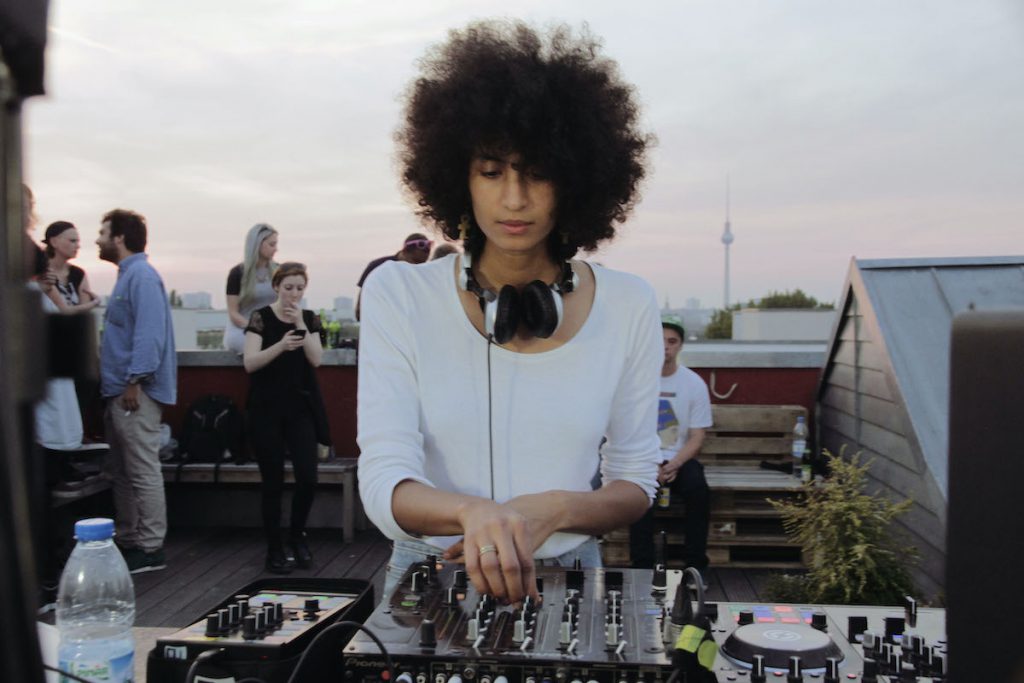
“We aim to have a line-up and crowd as diverse as possible,” says Thomas. Operate’s ethos seems to be working as Thomas tells me about a time where he was approached by a group of four South-East Asian men who thanked him for the night, as they haven’t been let in anywhere else. “They told me that they’re gonna come to Operate every time they’re in Berlin now, which made me super happy!”
With the current conversations about racism and inclusion, there is a very thin line between tokenism and genuine bookings. Both Sarah Farina and Kikelomo emphasise that they don’t want to be booked because of their skin colour or gender, but their talent. “There are two facets when it comes to diversity in the Berlin music scene,” says Kikelomo, “you have a lot of forward-thinking collectives like No Shade, which is kind of like an offset of the underground community. But, I think, the mainstream electronic music scene in Berlin isn’t so diverse. It’s very white, very male and not very intersectional.”
It seems that, in Berlin at least, the bass-scene is embodying what the techno scene once did: anonymity, a sense of underground and intersectionality. And even though bass music will most likely never replace house and techno in Berlin, there is guaranteed to be a lot more diversity in sound when clubs are allowed to reopen again.

